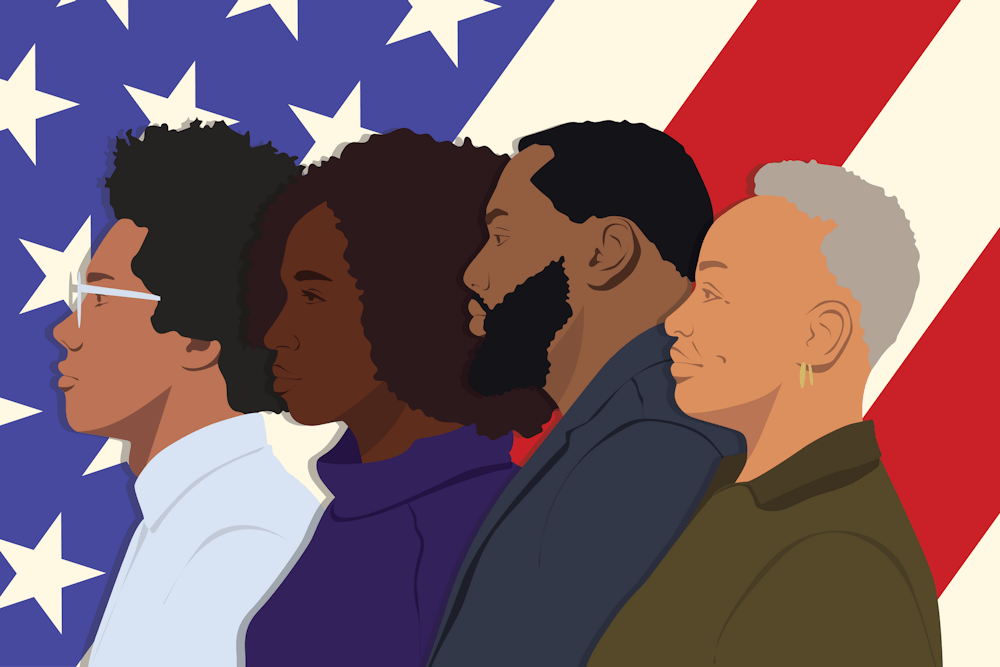For the mass of the electorate, Kamala Harris is a tough-on-crime career woman with a record of appealing to bipartisan political bigwigs, but to Black voters, she’s all of these and, endearingly, Big Sister General.
For Black voters, Black candidates are symbolic, revolutionary markers of societal progress — proof of the Black face’s integration into the visible fabric of American identity. Through them, we see ourselves, and in their lived experiences, we find pockets of similarity that remind us of the shared, bittersweet nature of Black identity.
When reduced to an identity forged by America’s historical inequities, Blackness becomes a landscape of barriers and exclusions, fenced in by widespread misunderstandings of intention, experience and motivation.
Politically, Black identity is shaped by the collective experience of being misunderstood, misrepresented and marginalized by politicians. This shared experience transforms Black identity into a political common ground among Black Americans, making the prioritization of Black candidates a natural response to America’s political climate.
Although the U.S. has a two-party system, neither fundamentally centers its platform around Black Americans, which is understandable as political parties are formed and sustained through broad shared interests, rather than a key focus on any one group.
The party assumed to have invested the most in the institutional liberation of African Americans, the Democratic Party, relies heavily on Black voters as a core part of its electorate. The loyalty of Black voters to the Democratic Party, however, is logical, stemming from a generational investment to the party that has historically best served the interest of Black identity.
Still, both the Democratic and Republican parties use the Black vote to their advantage when needed, often compromising or failing to fulfill on policy and stances that defend and protect Black Americans.
The system itself often treats Black people as a single, monolithic group, imposing laws and ensuring outcomes that operate along racial lines. Every day, Black Americans face invisible limitations, barriers to achievement and carefully embedded obstacles. When Black voters choose Black individuals to serve, they contribute to a culture of identifying and dismantling hidden structural roadblocks, slowly balancing the scales for not only themselves, but other minorities.
The late Representative Sheila Jackson Lee was one of the only fervent supporters of H.R. 40, a bill that proposes a commission to analyze systemic inequities from slavery and their impacts on the health and well-being of African Americans today in an effort to establish a program of reparations. The bill was first introduced by John Conyers in 1989 and has never received enough bipartisan support to pass. The extended fight of Jackson Lee and Conyers illustrate that for Black candidates, going outside the bounds of partisan censorship, pushing for policies that address and recognize the deep complexity of the Black American is an isolating experience.




